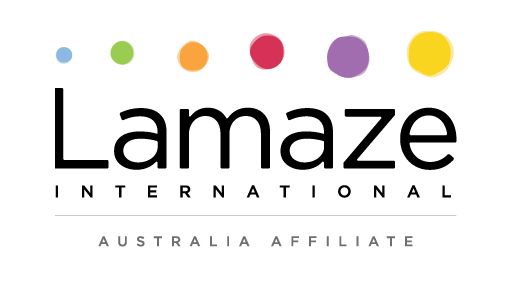Pregnancy and Birth during COVID-19: Is It Time to Re-examine Our Childbirth Education Content?
/'At a time when we are asked to stay apart, we need more than ever to come together.”
I have lost count at the number of times that I have read this. Across the globe, both in remote villages and large cities, the pause button has been hit as people wait for this pandemic to pass. We each live our busy lives within our own four walls with unique spaces functioning as head offices as people work from home when possible and kitchen tables are taken over by educational materials and art supplies as families educate their children while schools are shut down. Like many other childbirth educators, I found myself considering how to quickly move my childbirth education to a virtual format so parents could continue to receive the education they need. I considered how I would switch the existing curriculum to a virtual space when I wasn’t even sure if that is what families wanted or needed.
Fast forward three weeks, I now have learned so much more about pregnancy during COVID-19. I and other Lamaze childbirth educators in Australia distributed a survey link to a variety of public and private groups on Facebook, and on Instagram (with appropriate hashtags), across Australia and 188 people responded anonymously. Summarising their experiences for this article has required me to confront reality.
As childbirth educators, we don’t need reminding that the mind-body connection holds incredible significance for safe and healthy pregnancy, labour and birth. Anxiety, stress, fear, and worry all hinder the cocktail of birth hormones we pay frequent tribute to in our classes.
Of those who responded to the survey, 84% are pregnant with almost half of the respondents in the 3rd trimester. For that group, birthing during the pandemic is inevitable. Initially I expected to see many more responses relating to anxiety about contracting the virus either in pregnancy or after the birth. However, this was represented in only 7% of the answers. I contribute this to the fact that pregnant people in Australia are generally isolating and are well informed about the importance of practicing social distancing and hand hygiene when they are attending appointments, work or essential shopping.
Respondents stated that the prominent triggers for their anxiety and stress were social isolation from friends, family, work and the inability to participate in celebrations (41%) and restrictions being placed on birth support people (24%). Pregnancy has not gone to plan for these people and their emotional health is suffering. The ability to reduce their stress through community, to celebrate their pregnancy and share their pregnancy and baby with friends and family sources have been eliminated or at a minimum significantly altered.
One woman stated:
“...instead of having the village rally behind me and support me, I now feel isolated and terrified.”
Another said,
“I have to let go of what I thought pregnancy would be like and accept it for what it is.”
This woman's sense of grief and loss is palpable. Anticipation of postpartum mood disorders was mentioned in 8% of survey responses but I expected this number to have been higher had the questions been tailored to the 4th trimester expectations these women have.
22 women who recently gave birth completed the survey and were postpartum. 72% of them rated their birth experience as satisfactory. 28% reported unsatisfactory experiences of being “pushed into induction,” “partner being refused entry after they left to go get more clothes,” “Postpartum hemorrhage after being discharged early to avoid possible exposure to the virus and requiring an ambulance take me back hours later,” and “I felt like I gave birth in a war zone,” On a positive note, people did comment on using the forced isolation after birth to have uninterrupted bonding with their baby at home whilst acknowledging their sadness surrounding interstate and international travel bans that prevented grandparents and family from being a part of this special time.
There is an overwhelming sense of sadness when reviewing the experiences of pregnant and postpartum people during this pandemic. It is clear that the joy and celebration have been ripped away and replaced with a tsunami of other emotions.
My perspective as a childbirth educator is that any curriculum I will use virtually needs a revamp. Prior to this pandemic, I talked a lot about the village, developing connections and sharing the journey with those who help oxytocin flow. Currently, the reality for birthing people is a bit like a black tunnel with no lights, an uncertainty about what comes next. I would expect families having their second or additional baby to draw upon past experiences as a way of managing the challenges of birthing in this 2020 pandemic. My heart is with the first time birthing parents for whom it must be nothing but an uphill battle. How do you find your place of calm and connection to let the birth hormones flow uninterrupted when your mind is swamped with many competing, negative emotions?
For my current virtual classes, I have included an opportunity to grieve for the loss of the experience of pregnancy and birth that they thought they would have and have created a space to acknowledge that they have not failed their baby or themselves. With support and understanding of how we manage our mind-body connection, I provide an option for families to write a letter to their baby to express their feelings about bringing new life into this uncertain world. Allowing parents the opportunity to communicate their sadness has been successful. I remind families that birth can still be positive. Continuing to educate and inform using the Six Healthy Birth Practices whilst being creative with how to use technology to their advantage in the birth suite.
Reading from one woman that her fears around COVID-19 have had her contemplating terminating her pregnancy confirms how severely compromised the mental health of many pregnant women is at the moment, and adds layers of complexity to the normal challenges of pregnancy, the postpartum period and early parenting.
While childbirth educators are correct in bringing their classes to families by offering a virtual childbirth class experience, we must consider what needs to change in these classes in order to address the realities that pregnant and new families are facing during these unprecedented circumstances. It is not enough to offer our regular curriculum without including current best practices for birth during COVID-19, and allowing space to address the emotional needs of the pregnant person and their family. To leave this component out would be doing a disservice to the families we support. How have you adapted your content to meet the needs and challenges facing families who will birth during the COVID-19 pandemic?
About Lesley Pascuzzi
Lesley Pascuzzi, LCCE, BSc, MSc, Dip, is a Lamaze Certified Childbirth Educator, a maternity services consumer advocate and a representative of the Lamaze Australia BEAR Project (Birth Equity, Advocacy and Research). Residing in Perth, Western Australia with her family, Lesley is keen to use this small piece of research to enhance her knowledge and experience in her current consumer advocacy projects. Lesley has studied Psychology to Masters degree level and has a specialist interest in perinatal mental health. She recently released a series of podcast episodes relating to the areas of concern amongst pregnant women in Australia during COVID-19 and this can be accessed on Anchor and on Spotify. You can access the apps for free on Apple and Android platforms. Lesley can be contacted through her Facebook and Instagram accounts and through her website.







